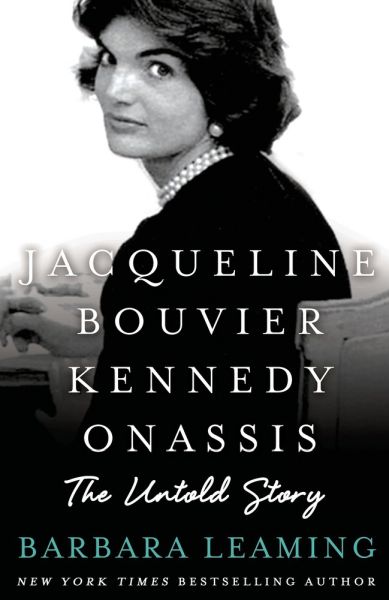
The October issue of Vanity Fair includes an article by Barbara Leaming about Jacqueline Kennedy, focusing on the aftermath of her husband’s murder in November 1963. ‘The Winter of Her Discontent‘ is an extract from Leaming’s upcoming book, Jacqueline Bouvier Kennedy Onassis: The Untold Story.
“The untold story of how one woman’s life was changed forever in a matter of seconds by a horrific trauma.
Barbara Leaming’s extraordinary and deeply sensitive biography is the first book to document Jacqueline Kennedy Onassis’ brutal, lonely and valiant thirty-one year struggle with post-traumatic stress disorder (PTSD) that followed JFK’s assassination.Here is the woman as she has never been seen before. In heartrending detail, we witness a struggle that unfolded at times before our own eyes, but which we failed to understand.
Leaming’s biography also makes clear the pattern of Jackie’s life as a whole. We see how a spirited young woman’s rejection of a predictable life led her to John F. Kennedy and the White House, how she sought to reconcile the conflicts of her marriage and the role she was to play, and how the trauma of her husband’s murder which left her soaked in his blood and brains led her to seek a very different kind of life from the one she’d previously sought.
A life story that has been scrutinized countless times, seen here for the first time as the serious and important story that it is. A story for our times at a moment when we as a nation need more than ever to understand the impact of trauma.”
This is not Leaming’s first book on the subject: Mrs Kennedy (2001) focused on Jacqueline’s thousand days as First Lady. And prior to this, another Leaming biography – entitled simply Marilyn Monroe – was published in 1999.
In her Vanity Fair article, Leaming reveals that in the months after her husband’s assassination, Jacqueline Kennedy considered suicide. The death of Marilyn Monroe just a year before – then widely believed to have been a clear-cut suicide – played on her mind, as she confided to a Jesuit priest, Father Richard T. McSorley, in early 1964.
“By May 19th, Father McSorley found himself growing fearful that Jackie, as he wrote, ‘was really thinking of suicide.’ The priest had briefly hoped she might be doing better, but the way she talked now spurred him to take a different view. Speaking again of the prospect of killing herself, Jackie told him that she would be pleased if her death precipitated ‘a wave’ of other suicides because it would be a good thing if people were allowed to ‘get out of their misery.’ She disconcerted the priest by insisting that ‘death is great’ and by alluding to the suicide of Marilyn Monroe. ‘I was glad that Marilyn Monroe got out of her misery,’ J.F.K.’s widow maintained. ‘If God is going to make such a to-do about judging people because they take their own lives, then someone ought to punish Him.’ The next day, after Father McSorley strove to persuade Jackie that suicide would be wrong, she reassured him that she agreed and that she would never actually attempt to kill herself.”